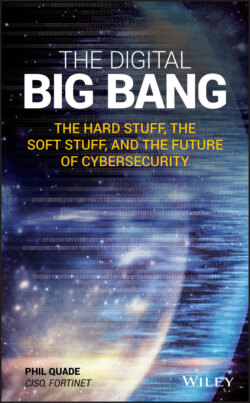Читать книгу The Digital Big Bang - Phil Quade - Страница 11
THE SCIENTIFIC REVOLUTION
ОглавлениеAfter the cosmic big bang, billions of years passed before humans came along and eventually started trying to make sense of the whole thing.
In human history, the most recent and most significant age is the Scientific Revolution, not so much because of what it achieved, but because of what it left behind. It was in the Scientific Revolution that we finally admitted that we didn't know everything. The admission of ignorance advanced the pursuit of knowledge and reason. It allowed us to define the modern laws of physics and chemistry; to explain, in a data-driven way, how nature's fundamental elements interact; and to discover the perils? of ignoring those laws. It incentivized us to fill in gaps in our data collection that we didn't feel obliged to before.
For example, the maps of the world from 750 years ago had elaborate drawings of mid-ocean whirlpools and sea monsters—here be dragons—mid-continent mountain ranges, and other physical phenomena. Faulty thinking, and the desire to warn of the dangers of sea exploration, led mapmakers to fill in what they did not know.
In contrast, the maps of the Scientific Age were drawn with large blank areas, showing where we had no data. It was not until we admitted that we in fact had very little idea what was beyond the horizon, or mid-ocean or continent, that we began exploring those areas and filling in the missing pieces that led to a much better understanding of our world.
The pull of curiosity about basic principles reduced the fear of the unknown and prompted the physical world's golden age of scientific education.
Now we must make the same leap in cybersecurity. We need to stop quaking at the cyber threats—real and imagined—and get down to the business of defining how to navigate and master those threats.
